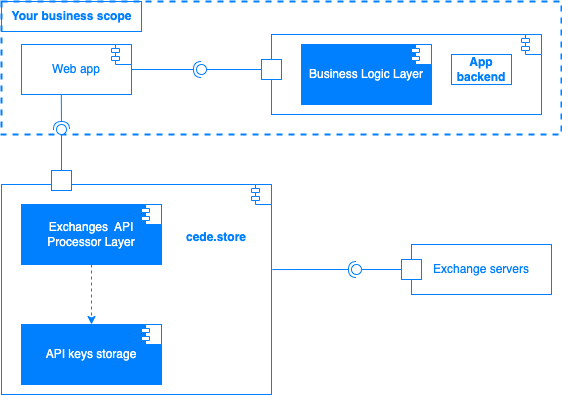Introduction
Cede.store is a non-custodial browser extension to store CEX (centralized exchanges) API keys and to sign CEX requests from the client-side. It allows you to manage your cryptos in your CEX through a unique interface, with a familiar UX, much like the well-known DeFi browser wallets (e.g. Metamask).
Any dApp can integrate cede.store in order to track and/or manage a user's CEX assets. In that way, we offer the dApp a way to track and manage a user's CEX assets while staying non-custodial and keeping the same UX as any DeFi browser wallet.
CEX connection
All requests are divided into two categories:
- private requests
- public requests
All public data, such as prices, volumes, historical data are collected from different exchanges and streamed in real time through our API.
All private requests, such as user balances, trades, open positions are coming from cede.store (from the user's machine).
You can access both public and private data through the extension's API. Cede.store handles all exchanges requests, as well as API keys secure storage.

Vault management
Vaults allow creating bundles of CEX accounts. The extension connects with CEX through CEX API keys and everything is stored in the Local Storage of the browser. Mobile and Ledger storage are coming soon. We can compare Vaults with the Keyring concept (opens in a new tab) of Metamask.
A user can have multiple vaults with different CEX accounts inside. This system allows the user to give a dApp custom access to his accounts depending on the degree of trust he has in the dApp in question.
Let's say the user has three vaults: a main one with full access (track, trade, withdraw) to all his CEX, one just for tracking and one just for trading. If the user does not know the reputation of the dApp he is using, the most logical solution would be to give access only to the tracking vault so the dApp will not be able to initiate trade requests.